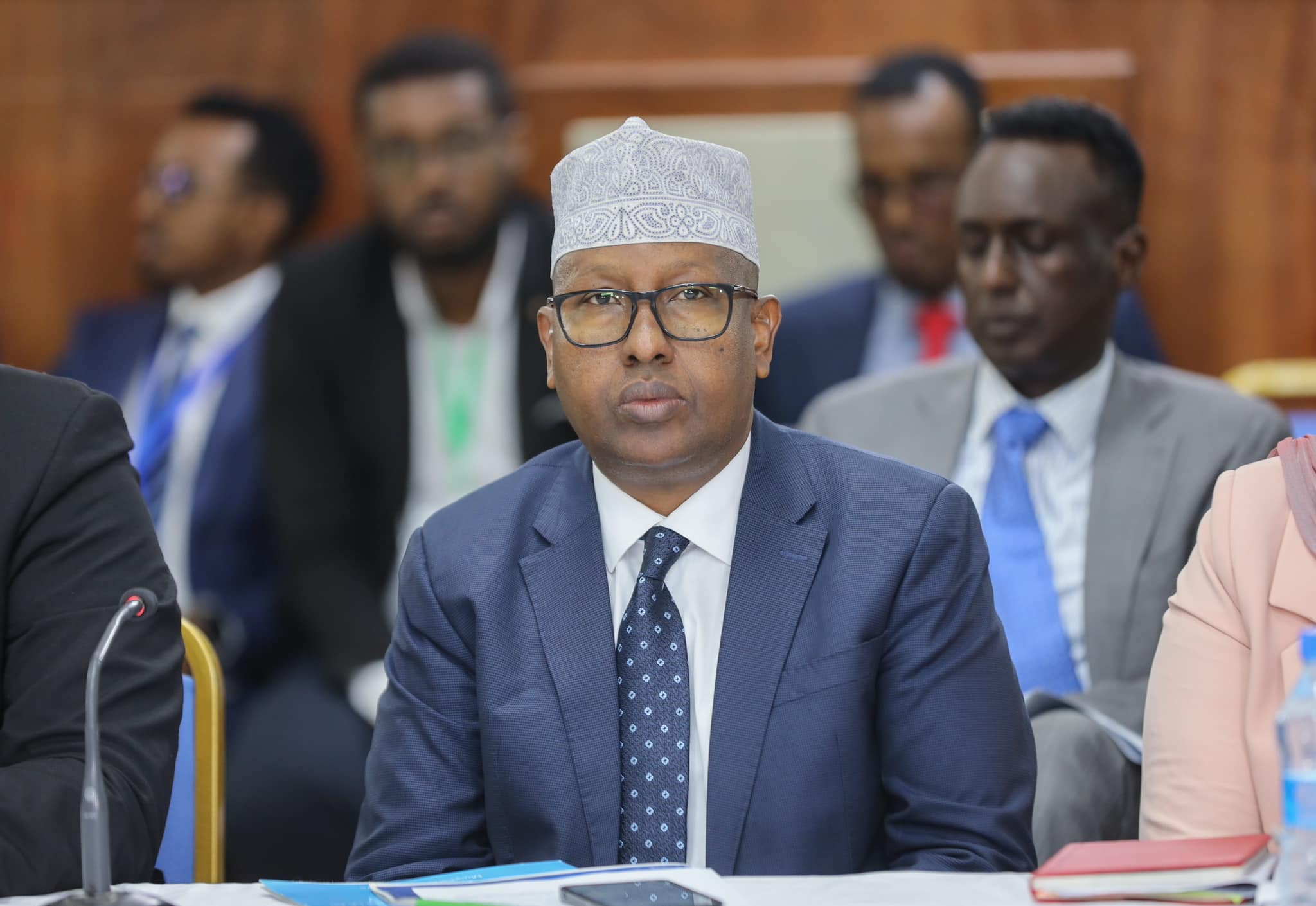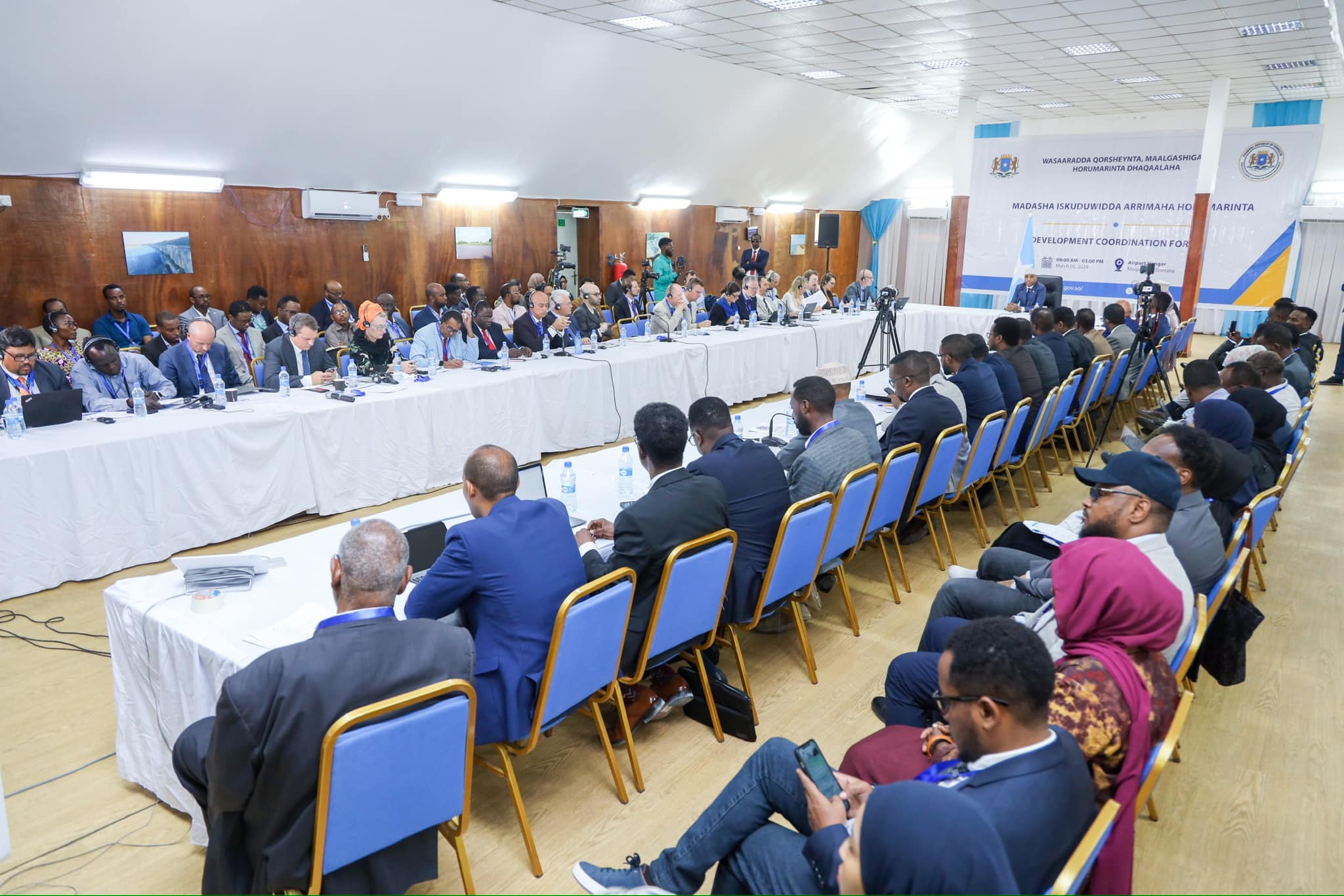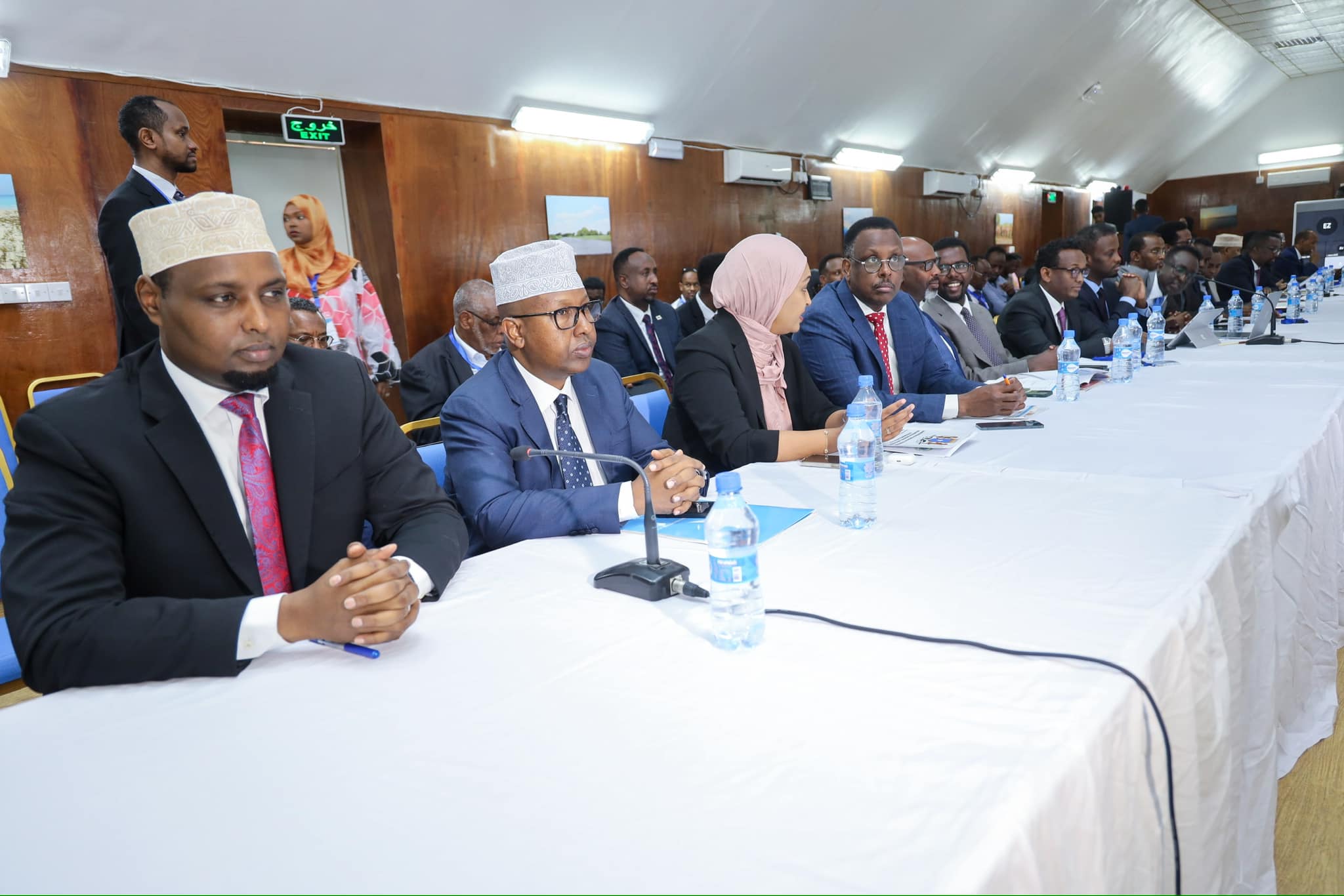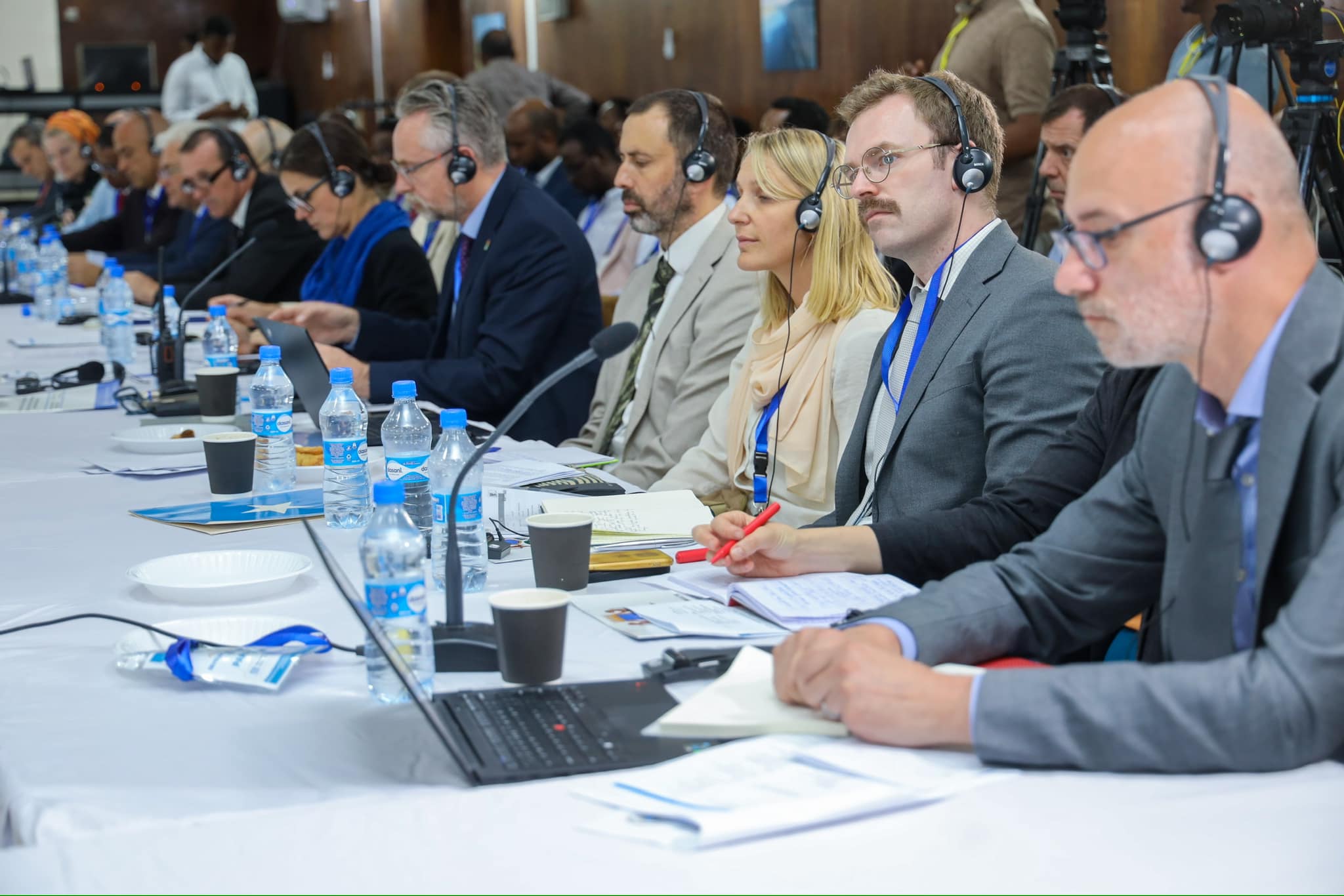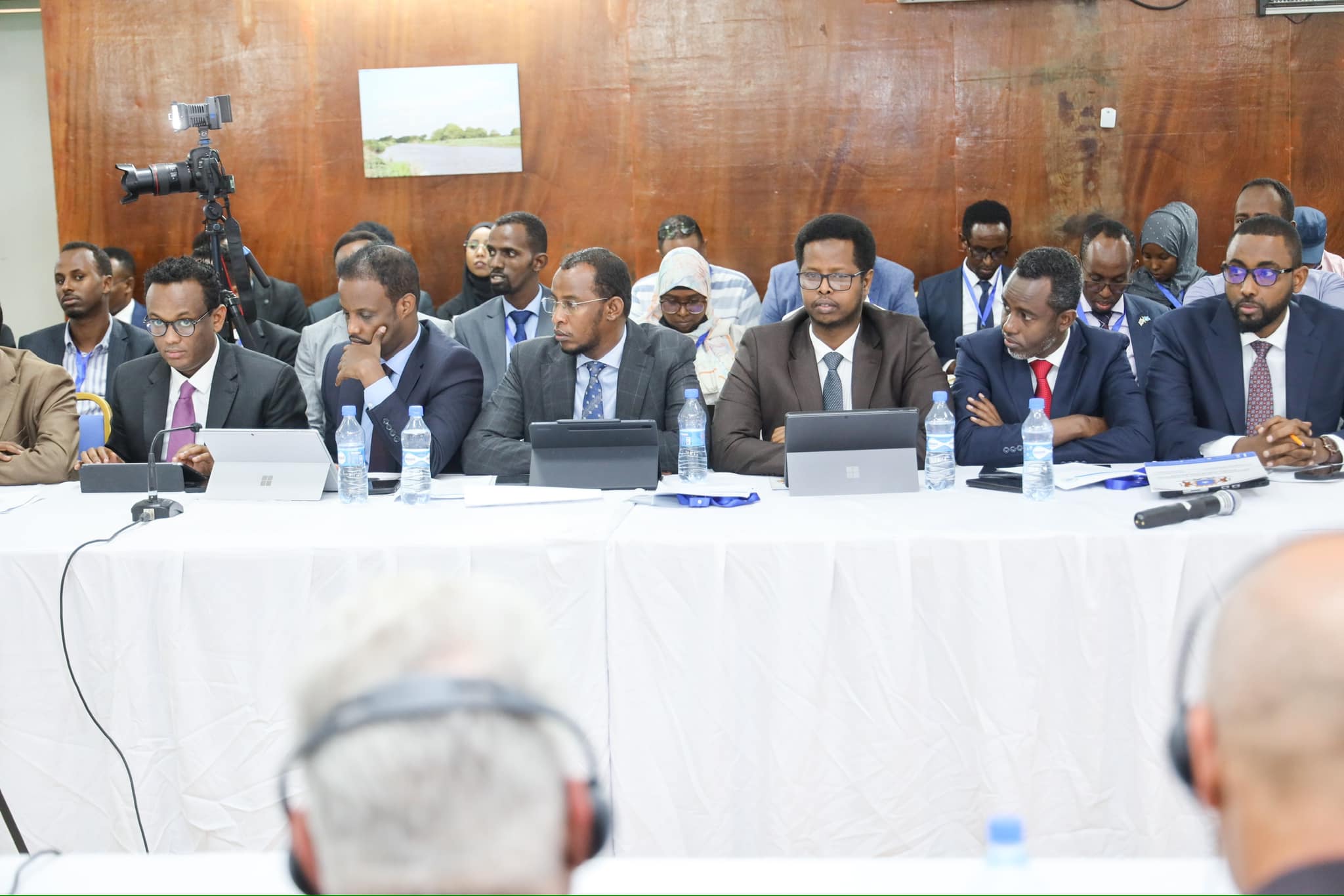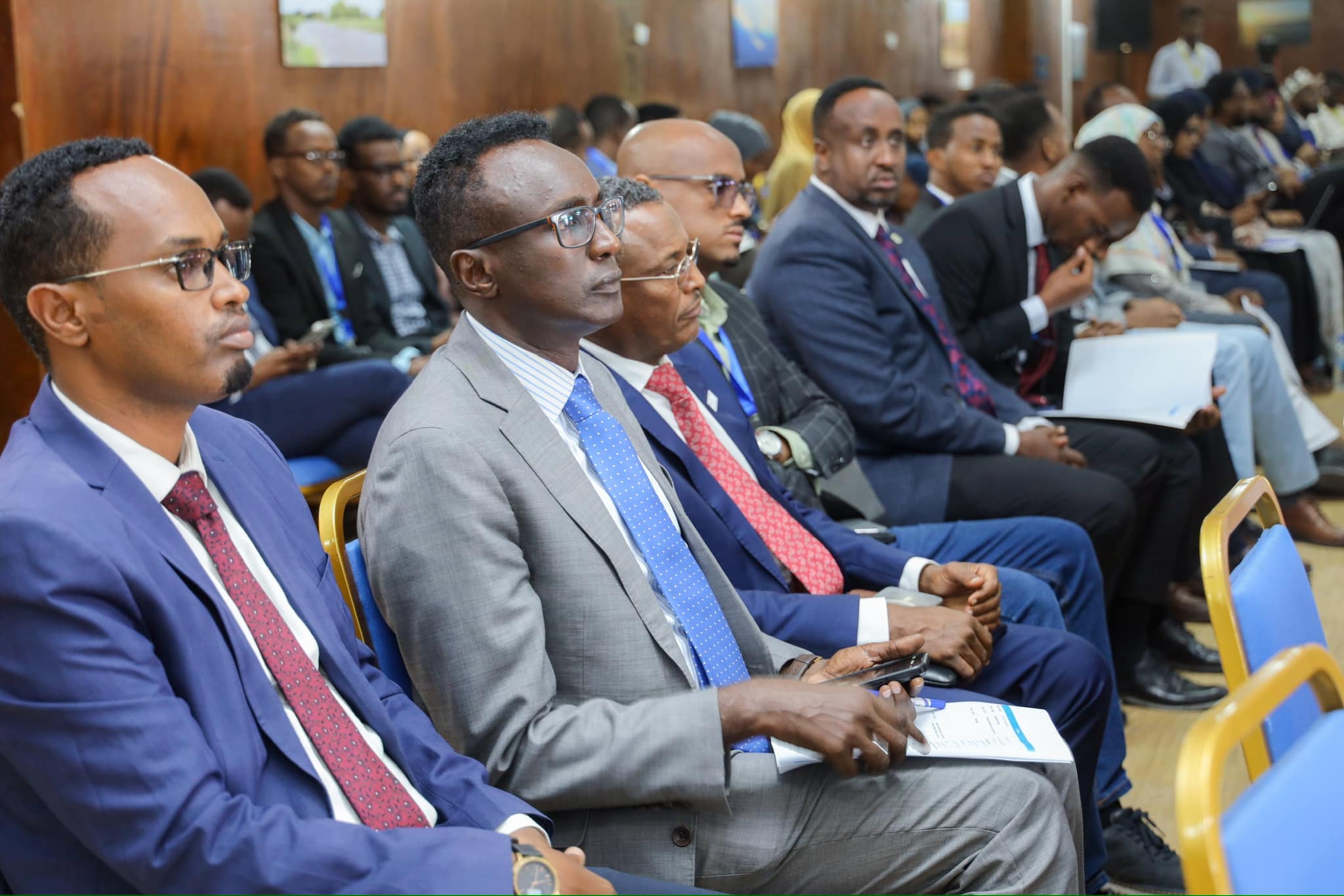- March 6, 2024
- Posted by: Xidig
- Categories: Banaadir, Kulamada, Wararka
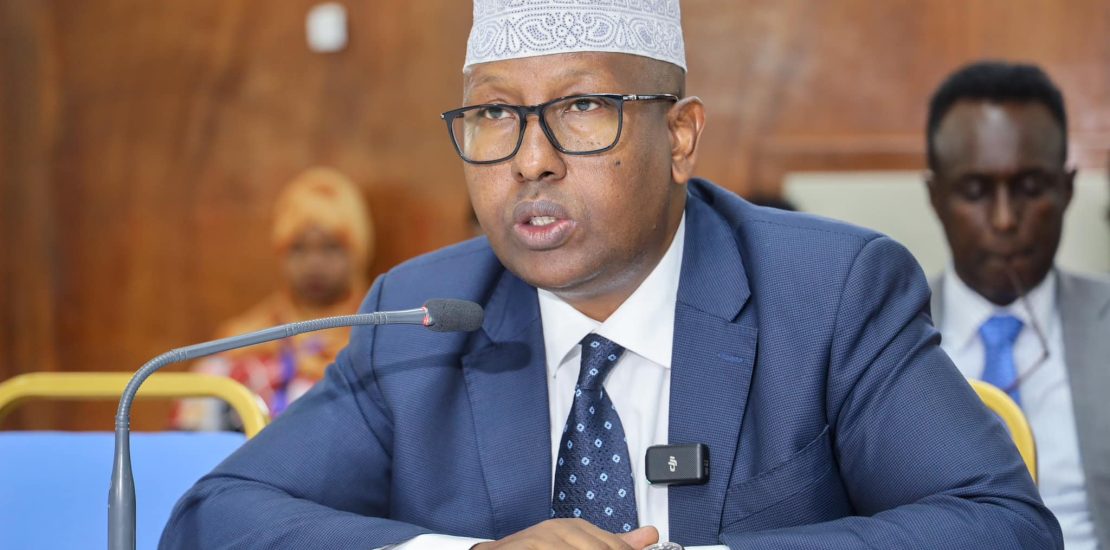
Mogadishu 05 Mar 2024; The Minister of Internal Affairs, HE Ahmed Moallim Fiqi, participated in the Development Coordination Forum (DCF) in Mogadishu, which brought together various stakeholders, including officials from FGS, FMS, donors, UN, Civil Society Organizations, and others.
He delivered a keynote speech emphasizing the important role of inclusive politics, which is a fundamental pillar to achieve sustainable development, stressing that without collective efforts to eradicate poverty, ensure food security, promote health and safety, and combat climate change, progress will be hindered. He added that political stability is also the basis of all development projects.
“Somalia today is recovering from political instability, ongoing wars, and security challenges that have plagued the country for a long time. While we have made significant progress and achievements in the fight against terrorist groups, there is a strong need to increase efforts in stabilizing the areas that have been liberated from terrorists so that the locals can access government services that have been restricted for some time,” said the Minister of the Interior.
“Somalia is undergoing a monumental transformation as the government actively works towards democratization efforts that will empower its citizens to exercise their right to vote and elect their leaders. This commitment to change is not only shaping the dynamics of Somali society, but it is also paving the way towards a more inclusive and democratic future for the country,” he said.
The Minister Fiqi underlined that one of the Ministry’s top priorities is implementing agreements of the National Consultative Council and making them practical while considering inclusivity and tangible positive results.
At the end, the Minister of Interior reaffirmed the pillar of inclusive politics to address challenging issues, especially the completion of election laws and finalization of local governments’ protocols and guidelines. He also noted providing public identification, strengthening local governments and the decentralization of services and jobs, the completion and implementation of the agreement on the demarcation of powers, the implementation of the real process of national reconciliation, the promotion of peace-building efforts in Somalia, and the increase of stabilization programs.
